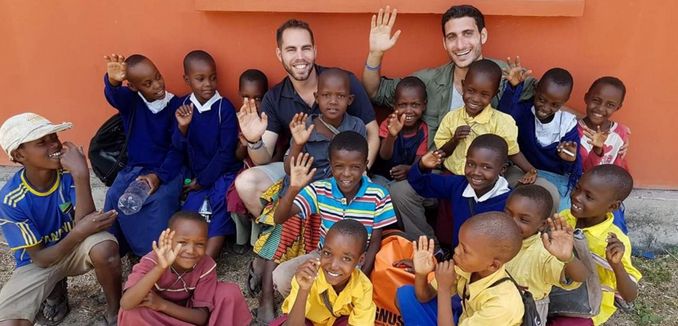A solar electricity generator and storage batteries are providing constant electricity for the first time to Nkaiti Medical Center in Minjingu, a village of about 7,000 subsistence farmers and cattle ranchers in Tanzania—thanks to the Tel Aviv University chapter of Engineers without Borders.
Since Minjingu is not connected to the national grid, the medical center struggled to provide basic healthcare services, lacking the ability to store vaccinations, sanitize the equipment, use electrical appliances, or operate during nighttime.
Hoping to bring an immediate and long-term improvement to the community’s quality of life, ten Tel Aviv students flew to Tanzania to install the generator and batteries in cooperation with local companies and volunteers.
The solar project is made possible by donations to the ongoing crowdfunding campaign, a grant from the Kirsch Foundation in California, support from Tel Aviv University’s Center for Renewable Energy, and donated supplies from Ormash Solar Technology and the Israeli office of the global company Schneider Electric.
This is the group’s second project in Minjingu. In 2014, they designed and installed a rain-collection and purification system. Because the drinking water from an underground spring is exceptionally high in fluoride, many local children were born with severe developmental conditions, such as skeletal deformities and cleft lip.
The Israeli students built the rainwater system in collaboration with locals and trained them in performing maintenance. The villagers have added more tanks on their own, and during the October trip the Israeli students performed tests in preparation for the final expansion of the system.
Engineers without Borders-Israel includes chapters also at the Technion-Israel Institute of Technology; The Hebrew University of Jerusalem; Hebrew University’s Faculty of Agriculture, Food and the Environment in Rehovot; and Afeka College of Engineering in Tel Aviv.
The Tel Aviv University chapter is also establishing a biogas system for the university’s zoo to reuse waste currently being discharged into the Kishon River.
Hebrew University’s chapter partners with the Jerusalem municipality to run a year-round course teaching kids how to craft their own renewable energy devices, using materials donated by the multinational company Applied Materials.
The Technion chapter, established in 2008 with a biogas project in Nepal, recently designed and implemented a safe drinking-water system at a school in northern Ethiopia.
The Rehovot Faculty of Agriculture chapter, founded in 2012, introduced advanced Israeli technologies and methodologies to Ethiopian farmers that resulted in a tenfold increase in yields.
(via Israel21c)
[Photo: Facebook ]




